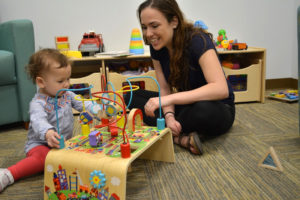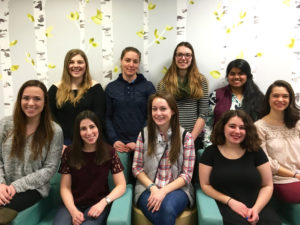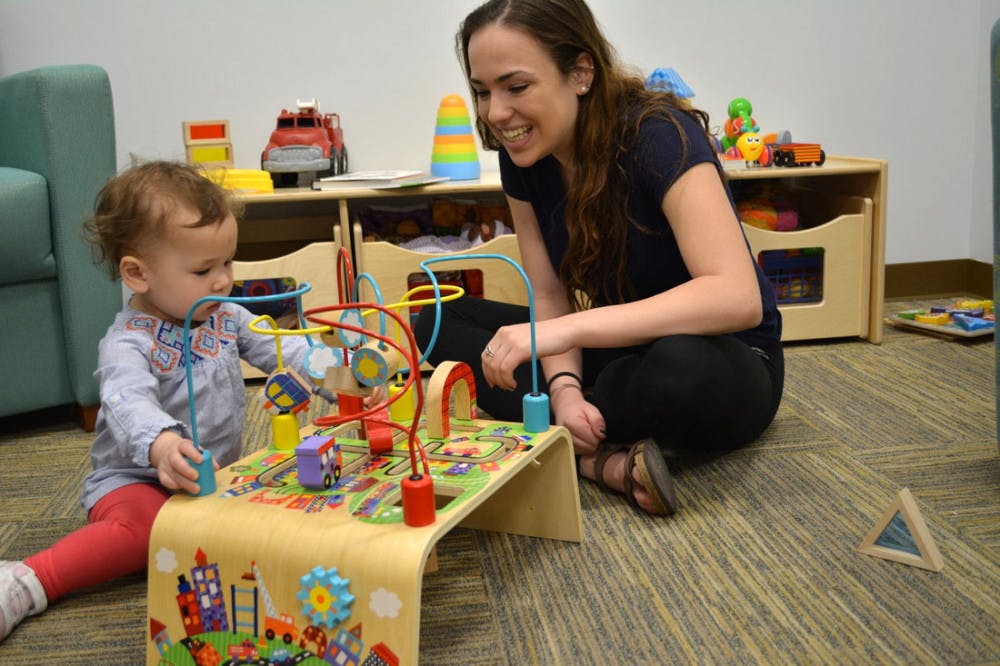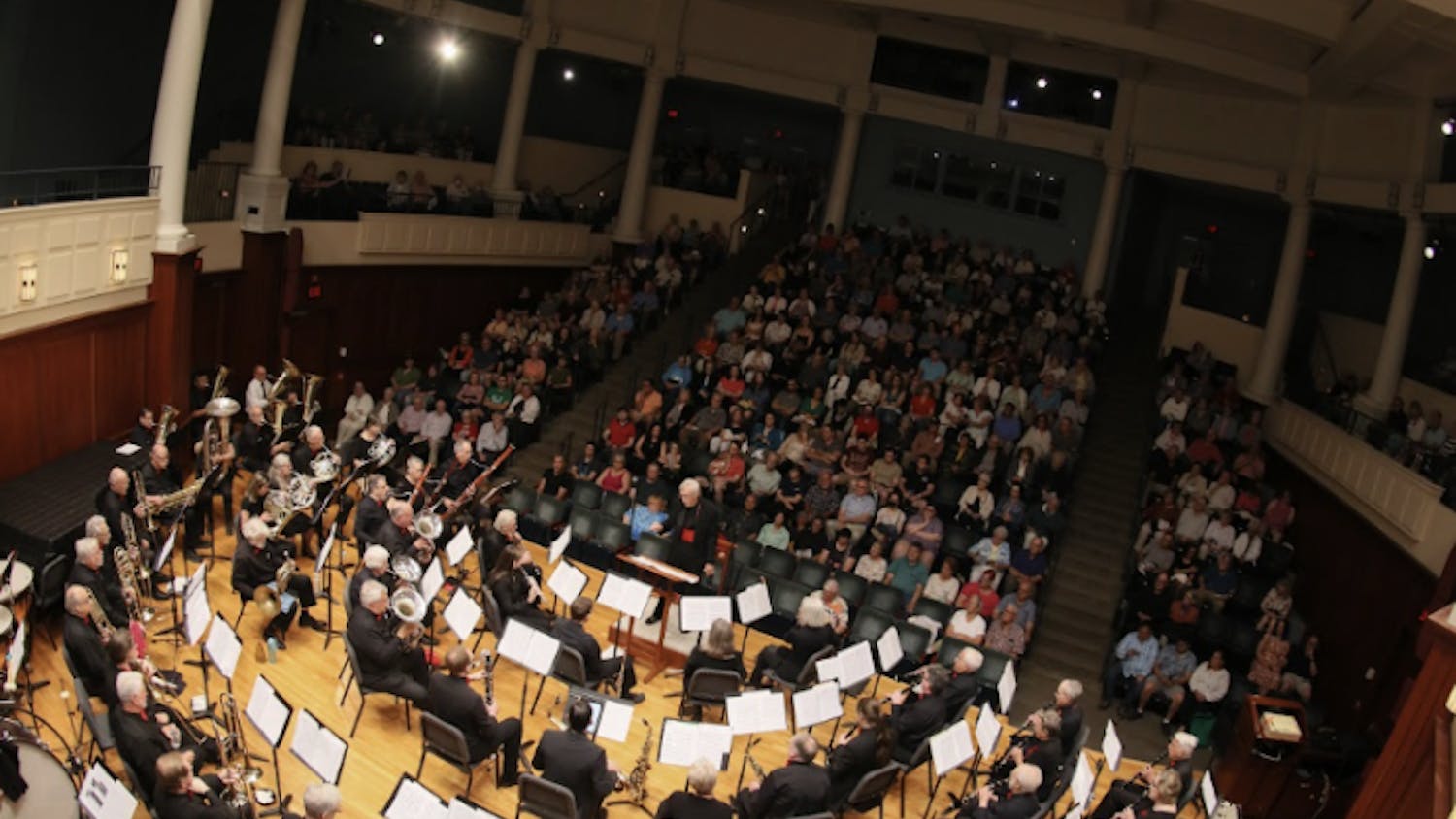By Angeles Melecio
Correspondent
A bright blue room plastered with decals of decorative trees is filled with the contagious laughter of infants. As the children settle down into this new environment, their parents are busy arranging the most important details of their visit.
Although it may sound like a nice space for children to come and play, it is actually one of the many places on campus where important research is conducted.
This past summer the College welcomed its most adorable class of residents yet: a group of 30 infants between the ages of 10 and 24 months old.
Despite their cute looks and playful nature, the infants took part in the first research studies conducted at the College’s new Cognitive Development Lab located in the Social Sciences Building.
“At the Cognitive Development Lab, we study how infants and children perceive and learn about the world around them,” said Aimee E. Stahl, an assistant professor of psychology and director of the lab.
The idea for this lab started with a simple question: How do infants learn?

Infants encounter an immense amount of new information every day but can’t possibly retain all of it. The lab’s main goal is to focus on how an infant determines what information is worth remembering. Research conducted at the lab is done in a customized fashion to accommodate the skills and needs of every participant.
“Many of our subjects are not even walking or talking,” Stahl said. “We therefore have to design clever experiments that tap into their knowledge.”
The type of study an infant participates in is determined by their age.
When conducting a study, the participant will be taken to a separate testing room where research assistants will perform a puppet show or showcase certain magic tricks.
Cameras are carefully placed in three different locations throughout the room to record the process and capture the infant’s reactions to the events.The studies share one common trait — the element of surprise.
Research has found that infants have preconceived notions about how the world around them should work, according to Stahl.
Infants become fascinated when events do not correspond to their expectations, therefore, they spend more time exploring different possibilities. This idea plays a crucial role in the main research developed at the lab.
In the span of just a few short months since June, the lab has found success in more ways than one.

Larissa Woods, a sophomore elementary education and psychology double major, expressed her excitement about the summer’s remarkable turnout.
“In just a few short weeks over the summer, we tested 30 babies and added around 100 families to our database,” Woods said.
This fall, the lab will be busier than ever as it expands its research studies to include infants between the ages of 24 and 48 months.
The wider range of ages included will provide further insight into the way an infant’s mind develops and changes as they reach and surpass two years of age.
The Cognitive Development Lab has come a long way since the idea for it was sparked years ago.
“The lab will be beneficial a long way down the line,” said Emma Pranschke, a junior psychology major. “Basic research will help to know what’s normal and what’s abnormal. The more we know, the better we will be in helping babies and knowing what to expect.”
Little by little, the lab has been working to improve its own methods as well as contribute to the overall knowledge of child development that is commonplace today.







